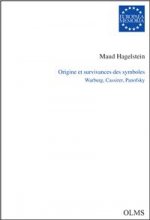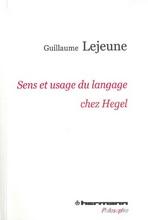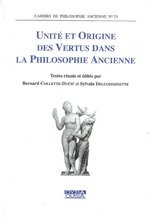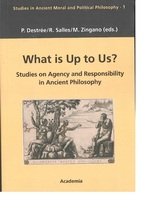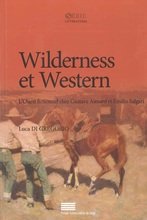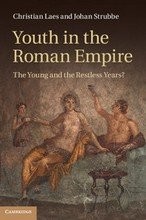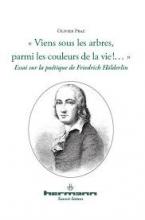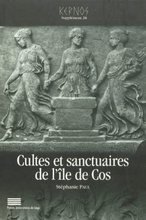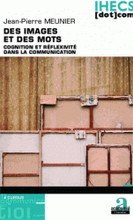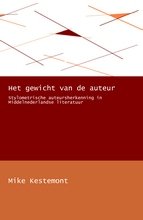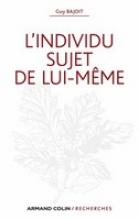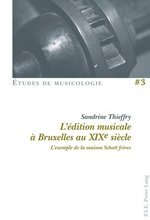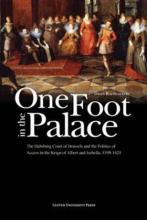
In accordance with its mission to support high level research in Belgium, the University Foundation provides financial support to partially cover the costs of the publication of scientific books which report on research in Belgian research groups.
Because the possible support is restricted to Belgian research groups, the regulations and application procedures are only available in French and in Dutch.
What follows is a list of books that were subsidized by the University Foundation since 2013. The titles are ordered by year of publication and by title. An extended list of subsidized books can be found in "Publications archive".
L’ouvrage présenté ici entend dégager la spécificité méthodologique du travail de l’historien de l’art et de celui du philosophe face aux productions artistiques. Au départ de cette recherche, une question aussi générale que décisive : comment aborde-t-on en théoricien une œuvre d’art ? Pour répondre à cette question méthodologique, on a choisi de se consacrer au problème de la tension entre l’approche transcendantale (ou apriorique) et l’approche historique de l’œuvre d’art.
Verrassend portret van de politieke debatten en didactische praktijk in het eerste geschiedenisonderwijs. Tussen 1750 en 1850 vormden de Zuidelijke Nederlanden het toneel van verschillende politieke omwentelingen. De Oostenrijkse, Franse revolutionaire, Napoleontische, Hollandse en Belgische bestuurders volgden elkaar in een snel tempo op. In het kader van de beoogde bestuurlijke centralisatie, stond het onderwijs tijdens deze regimewissels telkens bovenaan de politieke agenda. Vooral over het curriculum voor het secundair onderwijs werd hevig gediscussieerd.
Du problème de la communication de la philosophie à celui des philosophies de la communication. Pour Hegel, le sens s’élabore dans le langage, mais l’usage du langage ne fait pas nécessairement sens. Au niveau du discours, il semble même qu’un problème inévitable survienne. Si l’expérience d’un sens s’élaborant dans le langage ne s’accomplit que sous la forme d’un système autoréférent, comment ce sens peut-il se communiquer sans se contredire ?
Peut-on être courageux mais injuste ? Sage mais intempérant ? Juste mais ignorant ? À ces questions, Socrate le premier répondit que c'était impossible. Le plongeur amateur qui se jette la tête la première dans un puits sans savoir ce qu'il fait n'est pas courageux – seulement téméraire et stupide. Savoir. Tout est là. Mais comment savoir quand il n'y a personne pour vous instruire, seulement des charlatans ou des inspirés qui ne savent pas ce qu'ils disent ? S'il n'y a personne pour enseigner la vertu, comment pourrait-elle être un savoir ?
The problem of responsibility in moral philosophy has been lively debated in the last decades, especially since the publication of Harry Frankfurt's seminal paper, "Alternate possibilities and moral responsibility" (1969). Compatibilists - also known as "soft" determinists - and, on the other side, incompatibilists - libertarians and "hard" determinists - are the main contenders in this major academic controversy. The debate goes back to Antiquity.
Cet ouvrage pose deux questions relatives aux « matières de l’Ouest » : (1) S’est-il façonné en Europe une imagination propre des Grands Espaces et, si oui, quelles en furent les principales options éthiques, esthétiques et narratives ? (2) Qu’est-ce qui singularise les thèmes, les intrigues et les personnages privilégiés de cette écriture européenne par rapport à l’imagerie — surexploitée depuis Hollywood — impliquant le cow-boy, le shérif, ou encore les squatters et settlers de la Conquête de l’Ouest ?
Modern society has a negative view of youth as a period of storm and stress, but at the same time cherishes the idea of eternal youth. How does this compare with ancient Roman society? Did a phase of youth exist there with its own characteristics? How was youth appreciated? This book studies the lives and the image of youngsters (around 15–25 years of age) in the Latin West and the Greek East in the Roman period.
S’inscrivant de manière critique dans le mouvement d’émancipation moderne des principes fondateurs ainsi que de la matrice conceptuelle de l’esthétique classique, les fragments théoriques de Hölderlin s’emploient à démontrer que la littérature n’est pas seulement un fond documentaire mobilisé et informé par les besoins du philosophe, mais demeure, au contraire, intégrée de manière constituante dans l’économie de sa réflexivité, en lui octroyant des possibilités nouvelles de se déployer grâce aux ressources symboliques qu’elle met en œuvre.
En 366 avant notre ère, les différentes communautés de l’île de Cos s’unissent en une seule cité, dont le centre urbain, nommé Cos par homonymie avec l’île, sera fondé sur la pointe nord-est. Ce changement politique a profondément marqué le paysage religieux de l’île, en réorganisant les cultes et en reconfigurant le panthéon. Par un savant mélange entre nouveaux cultes et traditions ancestrales, cette réforme donnait à la communauté nouvellement constituée la cohésion d’une identité religieuse partagée.
Cet ouvrage situe l'étude de la communication dans celle de la cognition et tente d'explorer les diverses opérations cognitives impliquées dans la compréhension des messages échangés. Nombre de ces opérations sont automatiques et inconscientes. Néanmoins, la réflexivité se trouve également impliquée à des degrés divers selon les différentes sortes de médiations sémiotiques et leurs combinaisons dans différents médias. Cette perspective éclaire le rôle des communications dans la vie sociale.
In de digitale geesteswetenschappen (Digital Humanities) trachten onderzoekers het auteurschap van anonieme teksten met behulp van kwantitatieve methodes te achterhalen. Onderzoek wijst uit dat schrijvers vaak een unieke stijl hanteren, die met de hulp van computers kan worden herkend. Aangezien de Middelnederlandse literatuur rijk is aan anonieme teksten, zou ons inzicht in haar ontwikkelingsgang er sterk op vooruitgaan als wij een aantal van deze teksten zouden kunnen toeschrijven aan bekende auteurs.
Parmi les personnes interviewées dans cet ouvrage, aucune ne se déclare satisfaite de la vie qu'elle mène. Elles voudraient se consacrer davantage à elles-mêmes : avoir le temps d'écrire (Giovanna, Reine), de faire de la musique (Lia, Ludvig), mieux jouir de la vie (Guillaume, Pedro), devenir « quelqu'un de bien » (Julien), repartir à zéro (Ana). Toutes ont vécu ou vivent des périodes difficiles, des malaises identitaires plus ou moins profonds. Toutes voudraient échapper à une destinée sociale qu'elles n'ont pas vraiment choisie et qui ne leur convient plus.
Ancrée au carrefour de tout l’univers musical, l’histoire de son activité éditoriale constitue l’indispensable cheville d’articulation d’une mécanique plus globale, qui est celle de l’histoire des idées et de l’histoire du goût. Par l’essence même de son rôle de passeur, l’édition de musique se frotta à peu près à tous les aspects de lares musicae : du phénomène créateur à sa réception sociale, en passant par les filières d’apprentissage, les modes d’interprétation et leurs multiples répercussions.
Claudio Monteverdi (1567-1643) est une figure centrale de l'époque de transition entre la Renaissance et l'âge baroque. Sa pratique musicale se mêle à un souci constant de penser l'Arte musica et de justifier sa démarche de compositeur, à la manière du Tasse en littérature. Un des éléments majeurs de cette pensée réside dans le rapport de la musique au texte : l'armonia (la musique) se détourne de sa propre perfection, pour se soumettre à l'oratione, entendue comme poésie ou comme affect.
The Habsburg Court of Brussels remains one of the few early modern princely courts that have never been thoroughly studied by historians. Yet it offers a unique case, particularly with regard to the first decades of the seventeenth century. Once home to the Dukes of Burgundy, the ancient palace on the Coudenberg hill in Brussels became the principal residence of the Habsburg governors in the Low Countries and, in the period 1598-1621, that of Archduke Albert and his wife, the Spanish Infanta Isabella Clara Eugenia.

